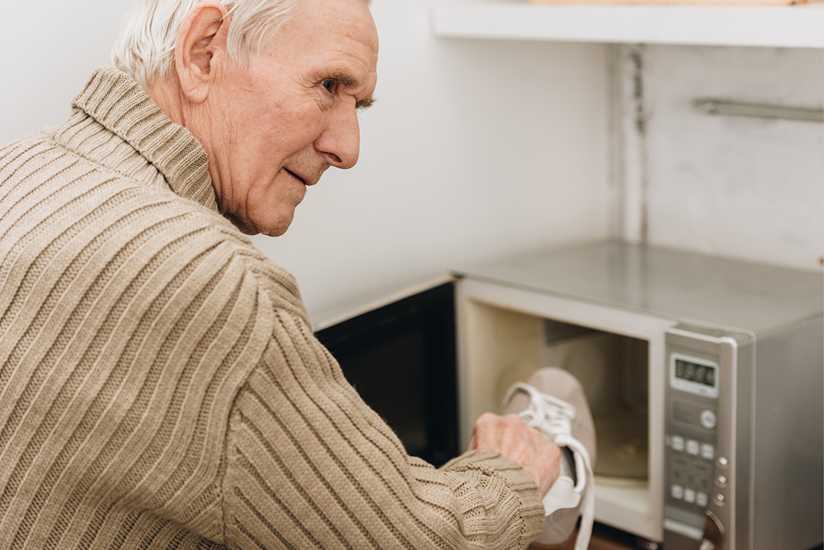
Understanding the Different Stages of Dementia and How to Provide Care
Dementia is a term used to describe a set of symptoms that affect cognitive and behavioral abilities. It is a progressive disease that affects millions of people worldwide. Dementia is caused by damage to brain cells and can affect memory, thinking, language, and behavior. Dementia is not a normal part of aging, and there is no known cure for the disease. However, with proper care and support, people with dementia can live meaningful lives for many years. In this article, we will discuss the different stages of dementia and how to provide care for people with the disease.
Stage 1: Mild Cognitive Impairment
The first stage of dementia is mild cognitive impairment. People with this stage of the disease may experience memory lapses, difficulty concentrating, and trouble finding the right words. They may also have trouble with tasks that require planning and organization. However, these symptoms are often mild and do not interfere with daily activities. At this stage, it is important to encourage the person to continue engaging in activities that stimulate the brain, such as reading, puzzles, and social interaction. It is also important to monitor the person's memory and cognitive abilities and to seek medical help if the symptoms worsen.
Stage 2: Early Stage Dementia
The second stage of dementia is early-stage dementia. At this stage, the person may begin to experience more significant memory loss, confusion, and difficulty with tasks such as cooking, cleaning, and managing finances. They may also have trouble with spatial awareness, such as getting lost in familiar places, and may experience mood swings and changes in personality. At this stage, it is important to provide the person with a safe and supportive environment. This may include making changes to the home to reduce the risk of falls and accidents, providing reminders for daily tasks, and offering emotional support and encouragement.
Stage 3: Middle Stage Dementia
The third stage of dementia is middle-stage dementia. At this stage, the person's memory and cognitive abilities continue to decline, and they may experience significant changes in behavior and personality. They may become agitated, confused, and paranoid, and may have trouble communicating or recognizing familiar people. They may also experience changes in sleep patterns and appetite. At this stage, it is important to provide the person with a structured routine and familiar surroundings. This may include providing a daily schedule, using visual aids to help with communication, and engaging the person in activities that they enjoy.
Stage 4: Late Stage Dementia
The fourth stage of dementia is late-stage dementia. At this stage, the person's cognitive abilities are severely impaired, and they may be unable to communicate or perform basic self-care tasks. They may also be bedridden and require around-the-clock care. At this stage, it is important to provide the person with comfort and dignity. This may include providing pain management, ensuring that the person's basic needs are met, and engaging in activities that provide sensory stimulation, such as music or massage.
How to Provide Care for People with Dementia
Providing care for people with dementia can be challenging. However, with the right approach, it can also be a rewarding experience. Here are some tips to help provide the best care for people with dementia:
- Seek support from caregivers - It can be overwhelming and difficult to care for a person with dementia. Seeking support from dementia caregivers can help you cope with the demands of caregiving as they can provide emotional support, suggest strategies to manage difficult behaviors, and provide information about dementia and other resources.
- Respect the individual - With dementia, it is important to remember that each person is an individual with a unique personality and needs. Treat them with respect and understanding, and be aware of their feelings and needs.
- Encourage independence - People with dementia are capable of doing many tasks, and it is important to encourage them to do as much as possible on their own. This will help to maintain their self-esteem and autonomy.
- Provide a safe environment - People with dementia may become confused and disoriented. To prevent accidents, create a safe and secure environment. Remove any clutter or obstacles that may cause confusion.
- Provide activities - Provide activities that are tailored to the person’s interests and capabilities. This could include music, art, games, or other activities that will help keep their mind active.
- Monitor health - Monitor the person’s health and make sure to keep track of any changes. Make sure to keep a list of medications and instructions from the doctor.
- Communicate clearly - When communicating with a person with dementia, use simple language and short sentences to make it easier for them to understand. Be patient and use positive reinforcement to encourage them.
Conclusion
Dementia is a progressive disease that affects millions of people worldwide. Understanding the different stages of dementia can help caregivers provide appropriate care and support for people with the disease. By communicating effectively, providing a safe and supportive environment, encouraging social interaction, providing structured routines and familiar surroundings, and seeking support, caregivers can help people with dementia live meaningful lives for many years.

Comments (0)